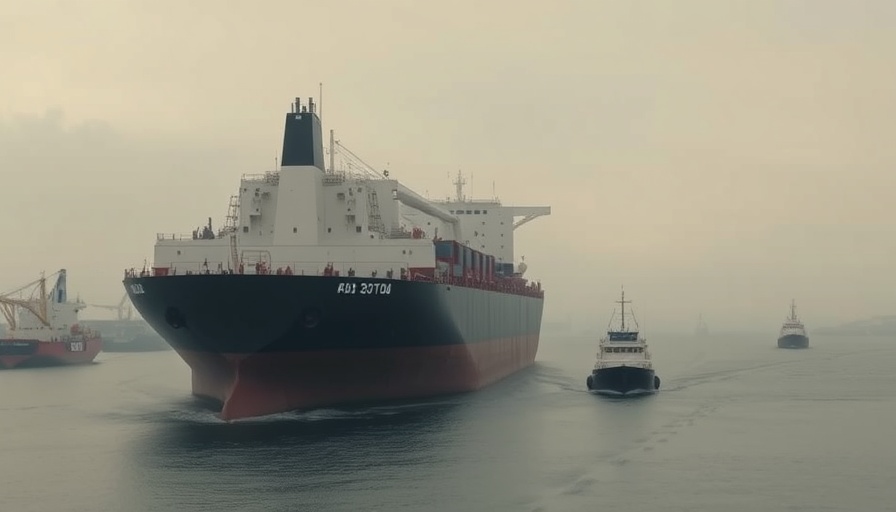
Uncertainty Looms Over the Strait of Hormuz
The Strait of Hormuz, a vital waterway for global oil shipments, is currently experiencing heightened tensions that are making many oil tanker owners think twice about navigating its waters. The chief executive of Frontline, one of the largest oil tanker companies, recently highlighted the dilemma faced by tanker owners amid geopolitical tensions in the Middle East. As conflicts escalate, the dangers associated with navigating through this crucial route are becoming increasingly apparent, raising alarms about potential disruptions to global oil supply.
The Impact of Geopolitical Tensions on Oil Supply
In the wake of rising conflicts, oil prices tend to become highly volatile. News about potential threats in the Strait of Hormuz often leads to immediate responses in the financial markets. The current reluctance of tanker owners to transit through this region not only reflects their concerns for safety but also indicates a potential risk to global oil supply chains. As the world's largest producers, the countries surrounding the Strait play a pivotal role in the market. It’s worth noting that approximately 20% of global oil trade passes through this narrow passage, emphasizing its geopolitical significance.
Exploring Alternatives: What Options Are Available?
For shipping companies like Frontline, the discomfort with using the Strait of Hormuz may lead to the exploration of alternative routes. However, these alternatives can increase costs and transit times, ultimately affecting prices at the pump for consumers. Moreover, some companies are turning to methods such as pipeline transportation, which, although more expensive, might offer a safer route for oil transport. Such shifts reflect the broader trend of companies actively seeking innovative strategies to circumvent geopolitical risks.
Local Business Implications: Bay Area's Role
For Bay Area businesses, particularly those involved in oil trade or dependent on oil resources, the implications of the strait's instability are profound. The Bay Area economy could witness fluctuations in fuel costs that affect everything from transportation to logistics in tech and consumer goods. The local startups and venture capitalists looking to innovate within the energy sector might find this an opportune moment, pushing the boundaries of sustainability and exploring alternative energy sources.
The Ripple Effects on Global Markets
Economic forecasts suggest that sustained disruptions in oil supply could lead to a broader economic slowdown, impacting industries globally. Market analyses indicate rising costs for businesses, which might pass on these costs to consumers. In a market that is already trying to recover from COVID-related disruptions, maintaining stability through this period of uncertainty will be critical for economic growth.
Business Leadership in Crisis
During these critical times, business leaders across various sectors must navigate the complexities of the energy market. Corporate leadership will require not only sound financial strategies but also innovative thinking around supply chain management and resource allocation. By staying informed on geopolitical developments and fostering resilience within their operations, companies can better prepare for potential fallout from disruptions in the Strait of Hormuz.
The Path Forward: Taking Action
As oil tanker owners weigh the risks of traversing the Strait of Hormuz, businesses must also adapt. Stakeholders from different sectors should consider engaging in discussions around sustainability in business practices, focusing on reducing dependencies on volatile energy sources. Increased collaboration and innovative approaches will be key to maintaining stability while exploring new opportunities within the economic landscape. Understanding market trends and their implications on local businesses, especially within the Bay Area, will be crucial to forming resilient business growth strategies.
 Add Row
Add Row  Add
Add 



Write A Comment